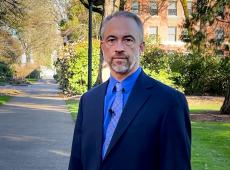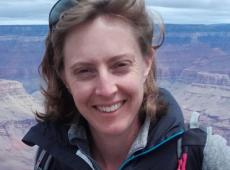The Missoula Fire Sciences Laboratory will hold a virtual two-part panel discussion on the state-of-the-science regarding climate and wildland fire during the upcoming fall semester of the recurring Fire Lab Seminar Series. Weather is a key driver for wildland fire, both in terms of direct effects (e.g., lightning, wind, and moisture effects on ignition and fire behavior) and indirect effects (e.g., weather drives fuel characteristics and dynamics which govern ignition and fire behavior). Thus, climate science and the information and products generated by the climate science community are inherently important for wildland fire research. A recent article by Dr. Steven E. Koonin with excerpts from his book, “Unsettled: What Climate Science Tells Us, What it Doesn’t, and Why it Matters,” stimulated discussion among fire researchers over the state of climate science as it relates to wildland fire. In an effort to delve deeper into the science, identify gaps in our current understanding, and facilitate a broader discussion on this topic, we have planned a two-part series of panel discussions featuring experts in the fields of climate sciences and wildland fire. The first panel will focus on the state of climate science, including observations, global climate modeling, and regional climate modeling and observations. The second panel will focus on the intersection of climate and wildland fire, including fire occurrence and intensity, post-fire recovery, and fire ecology. Together, the panels will address questions such as: What is the certainty/uncertainty associated with current climate projections? What do climate projections forecast for various regions across the Western US and how confident are we in those projections? What effect is climate change likely to have on fire regimes across the Western US? Will climate change produce more frequent and intense fires in the Western US? The intent is to facilitate scientific discussions that will enhance our understanding of the certainties, uncertainties, and limitations regarding climate science and wildland fire.
Discussing the State-of-the-Science on Climate and Wildland Fire: Part I: The State of Climate Science
Presenter Biographies
Dr. Xianglei Huang is a tenured full professor in the Department of Climate and Space Sciences and Engineering at the University of Michigan, Ann Arbor. He also serves as an editor for the Journal of Climate and the AMS (American Meteorological Society) atmospheric radiation committee chair. His expertise is in atmospheric radiation, with an equal involvement in satellite remote sensing and climate modeling. He is a recipient of the 2015 NASA Langley's Henry J.E. Reid Award. He is a co-Investigator for two NASA radiation budget missions to be launched in this decade and an overseas co-Investigator for an ESA (European Space Agency) mission on the far-IR radiation. As a University PI, he has participated in the DoE earth system modeling development effort since 2016. He obtained his Ph.D. from Caltech and did his postdoc at NOAA/GFDL and Princeton University.
Dr. Philip Mote is vice provost and dean of the Graduate School at Oregon State University and remains active in the Oregon Climate Change Research Institute (OCCRI) and the NOAA-funded Climate Impacts Research Consortium (CIRC) for the Northwest. He served for several years in leadership of the 60,000-member American Geophysical Union, as President of Global Environmental Change, member of the Council, Vice Chair of the Council Leadership Team, and a member of the Board of Directors. Philip was the founding director (2009-19) of OCCRI and remains involved in communicating climate science within Oregon. He earned a B.A. in Physics from Harvard University and a Ph.D. in Atmospheric Sciences from the University of Washington.
Dr. Isla Simpson is a Scientist 2 in the Climate Analysis Section within the Climate and Global Dynamics Laboratory at NCAR. She obtained her PhD in Atmospheric Physics from Imperial College London in 2009 and then worked as a postdoctoral fellow at the University of Toronto and Lamont-Doherty Earth Observatory of Columbia University before joining NCAR in 2015. Isla's research interests lie in the area of climate variability and change with a focus on understanding dynamical mechanisms in the climate system and on interpretation and verification of Earth System Model behavior and projections.


